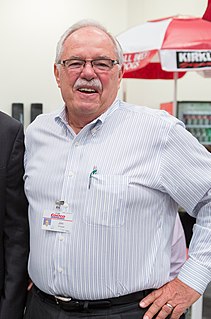A Quote by Mitt Romney
I don't know any nation on Earth that succeeded in creating a strong middle class with rising wages based on building a stronger and bigger government.
Related Quotes
The Trump administration's economic agenda is the right agenda. Corporate taxes have been driving capital and brains and companies overseas for a decade. It has caused huge damage in investment and jobs and productivity. It was a mistake. We have to fix it. Counterintuitively, that usually helps middle-class wages, and lower-class wages, and job formation.
The government decides to try to increase the middle class by subsidizing things that middle class people have: If middle-class people go to college and own homes, then surely if more people go to college and own homes, we’ll have more middle-class people. But homeownership and college aren’t causes of middle-class status, they’re markers for possessing the kinds of traits — self-discipline, the ability to defer gratification, etc. — that let you enter, and stay, in the middle class. Subsidizing the markers doesn’t produce the traits; if anything, it undermines them.
For 40 years, the American middle class has been disappearing. Millions of people are working longer hours for lower wages despite a huge increase in technology and productivity. And what we have seen during that period is a massive transfer of trillions of dollars from the middle class to the top one-tenth of 1 percent of America
A theory of the middle class: that it is not to be determined by its financial situation but rather by its relation to government. That is, one could shade down from an actual ruling or governing class to a class hopelessly out of relation to government, thinking of government as beyond its control, of itself as wholly controlled by government. Somewhere in between and In gradations is the group that has the sense that gov't exists for it, and shapes its consciousness accordingly.


































